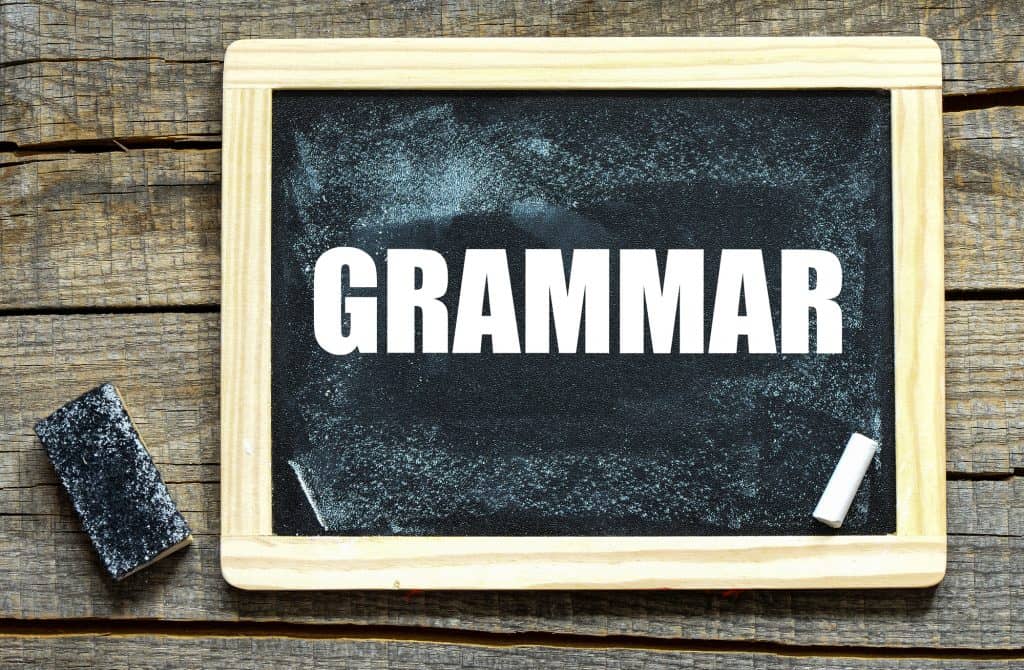
Writing Pet Peeves: Cringing While You Read
You know those times when you just want to kick back and enjoy scrolling through Facebook, and then you see a friend’s post that confused “your” and “you’re” and you feel like your head is going to explode? Frustrating, isn’t it?
Everyone has grammar pet peeves in writing that drive them nuts. In this blog, we’ll cover some of the biggest writing pet peeves I commonly see in writing today.
What Does Pet Peeve Mean?
Before we get to the list, let’s quickly give a pet peeves definition. In a nutshell, a pet peeve is something that a person finds particularly annoying. While you could have pet peeves about nearly anything in the universe, grammar pet peeves are especially visible/common because of the prevalence of digital content. With all of us having access to social media and being able to push our written words into the faces of just about everyone we know, a large number of pet peeves were sure to materialize.
List of Writing and Grammar Pet Peeves

I am by no means perfect. I mean, we all see the red squiggly line as we type every once in a while, right? But when it comes to published work, there are a few items that just drive me bonkers. Like these writing pet peeves:
Your/You’re
This is definitely eye-rolling grammar pet peeve territory. It actually hurts me when I see your vs. you’re confused. I do not publicly humiliate someone on social media when the words are switched (because someone else will do that, anyway), but I do die a little inside. Just in case you are unsure:
Your: Possessive, as in, “Your grammar needs work.”
You’re: Contraction of “you are,” as in, “You’re going to need to read the rest of this piece.”
They’re/Their/There
I believe autocorrect may be to blame for this pet peeve swap on social media in some cases. At least, that’s my hope. However, we all know that Word does not change the correct form of a word into something with a totally different meaning. This is the especially the case for there vs. their vs. they’re.
They’re: Contraction of “they are,” as in, “They are wondering why the dog seems sick.”
Their: Possessive, as in, “Turns out, even their dog was ashamed of their poor grammar.”
There: Refers to a place, as in, “There is a place to fix the problem, and it can be found in a grammar book.”
Me and My Sister

A good rule in grammar and a good rule in life: Do not ever put yourself first. This is probably a mistake made more often in the spoken word versus the written one, but it’s still a good point to make here.
Further, if you are unsure of whether you should use “I” or “me,” just drop the other word. You would not say, “My dad is taking I out to dinner,” so your sentence should be, “My dad is taking my sister and me out to dinner.”
No: Me and my sister missed the lesson on subject placement.
Yes: My sister and I know how to appropriately write sentences.
Very Unique
This is a common grammar pet peeve I see. Unique is just unique. There are no degrees of unique-ness. Unique is not a color with varying shades. If something is unique, it is standalone. By definition, it means, “Without like or equal.” You would not say someone came in “very first” in a race, would you? Same goes for unique.
Nauseous and Nauseated

These two are nearly always confused. I see this pet peeve on commercials a lot, which is hilarious because the word swap itself is hard to stomach. Is there a pill to take for that?
If you do not know the difference, it’s OK. I actually didn’t until a grammar ninja figuratively kicked me in the face when I used the wrong word.
Nauseous: Something that is nauseous causes nausea. “The smell is nauseous.”
Nauseated: Someone who has nausea is nauseated. “I feel nauseated.”
These are the technical meanings, though it appears that no one cares about the rule anymore. But if you’re like me and you do care, you can make an ill friend feel even sicker by correcting his or her grammar.
Misplaced and Dangling Modifiers
This is only partly a pet peeve of mine, because I actually think misplaced modifiers can be pretty funny:
– Flying through the air, the cat struck down the bird. (Look! A flying cat!)
– Oozing off the table, Kate watched the slime fall to the floor. (Gross.)
– I saw a giraffe driving through the Serengeti. (Impressive.)
Consider what you are modifying. An introductory phrase, like “flying through the air,” modifies the cat, not the bird in the sentence above.
Commas, Commas, Everywhere!

Oh, the commas. Those sentence-breaking, breath-taking commas. Commas are great when needed, but they can really mess with your sentences if the placement is wrong or unnecessary. You don’t need to use a comma every time you would pause when speaking, like this:
No: I took a breath, and went into the house.
Sure, it’s dramatic, but the comma there isn’t necessary. In fact, it’s wrong, because it leaves the dependent clause hanging.
Yes: I took a breath and went into the house.
Ah, much better.
Less vs. Fewer
This grammar pet peeve has stuck with me ever since Grammar 101 in college, a course I wish everyone were required to take:
Fewer: Use with items that can be counted. Ex: “She had fewer mistakes than he did.”
Less: Use with non-countable items. Ex: “She prefers less salad dressing.”
More Than vs. Over
Thanks to a recent change in the AP Stylebook, this should technically no longer be a pet peeve of mine. Apparently, “over” can now mean “more than,” and I think it’s a darn shame. Have we no standards? It used to be that you only used “more than” when referring to a number of items and “over” when talking about a direction. Getting soft on grammar? More than my dead body! (See what I did there?)
Unnecessary Double Prepositions

It is incredibly easy for back-to-back prepositions to sneak into your writing because we often use them when we speak. I beg you: Don’t be a victim of double prepositions! It is redundant:
– The drinks are inside of the cooler.
– That is a topic of which you know nothing about.
A former editor of mine used to say, “Kate, keep it simple, stupid” (I think she really liked me). In other words, don’t use words you don’t need to use.
Exclamation Points!!!
One. Just one. Please. Please!
Irregardless
Some say “irregardless” is not a word. It is, but it’s just considered nonstandard, which means you shouldn’t use it. Type “irregardless” into Word, and you’ll get a red, squiggly line telling you that it’s not acceptable.
Frankly, using the word “irregardless” is just irresponsible. Just use “regardless” instead. You’ll look and sound smarter.
What’s Your Biggest Writing Pet Peeve?
I could write many, many more examples of the grammar pet peeves that make me want to cry. Instead of reading more of my rants, why don’t you share some of your writing pet peeves with us in the comments section below?


“Feel” vs. “Think”
The word “feel” has two definitions: 1.
be aware of (a person or object) through touching or being touched. 2.
experience (an emotion or sensation).
The word “think” also has two definitions: 1.
have a particular opinion, belief, or idea about someone or something. 2.
direct one’s mind toward someone or something; use one’s mind actively to form connected ideas.
Notice that these two words have two different definitions. That means that the words “think” and “feel” are clearly not the same words. Therefore, you should never use the word “feel” as another word for “think.”
Naked “This”
The word “this” should be accompanied by a noun or a verb. Consider this example: “This shows that he did not study for the test.” is not going to score any points with the reader. They are going to say “this what?” Rather, say “This failing grade shows that he did not study for the test.” It shows clarity and precision to the reader. You can say “This… is… Jeopardy!” and it will continue to be clear and concise to the reader.
Passive Voice
You never want to say “The game-winning home run was hit by Lou Gehrig.” Say “Lou Gehrig hit the game-winning home run.” Have some activity with your writing.
Irregardless is a word, despite the autocorrect database not including it: https://www.dictionary.com/compare-words/irregardless-vs-regardless?root=irregardless
You’re right, Nick. It is a word, but it’s considered “nonstandard.”